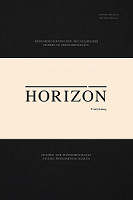PRO-CREATIVE FUNCTION OF PRODUCTIVE IMAGINATION IN KANT’S, FIRST CRITIQUE DISCUSSION REMARK ON THE BOOK OF SAULIUS GENIUSAS “PHENOMENOLOGY OF PRODUCTIVE IMAGINATION: EMBODIMENT, LANGUAGE, SUBJECTIVITY” Ibidem-Verlag, Stuttgart, 2021. ISBN-13: 978-3-8
PRO-CREATIVE FUNCTION OF PRODUCTIVE IMAGINATION IN KANT’S, FIRST CRITIQUE DISCUSSION REMARK ON THE BOOK OF SAULIUS GENIUSAS “PHENOMENOLOGY OF PRODUCTIVE IMAGINATION: EMBODIMENT, LANGUAGE, SUBJECTIVITY” Ibidem-Verlag, Stuttgart, 2021. ISBN-13: 978-3-8
Author(s): Natalia ArtemenkoSubject(s): Philosophy, Epistemology, German Idealism, Phenomenology
Published by: Издательство Санкт-Петербургского государственного университета
Keywords: productive imagination; Kant; function of time; temporal syntheses; knowledge; subjective deduction; pro-creative function;
Summary/Abstract: The aim of our “discussion remark” is not to present a critical review on the book written by S.Geniusas, a brilliant study notable by its extreme painstakingness, historical sensitivity and terminological accuracy, but rather to delve deeply into the origins of phenomenological understanding of productive imagination, i.e., to turn “back to Kant”, given in Saulius Geniusas’ book (the first chapter) for introductory reason. We proceed from S.Geniusas remark that productive imagination establishes a relation between different abilities, reconciles the antagonism between them and, in this respect, exercises a pro-creative function. We reveal that it is this pro-creative element of productive imagination that brings it closer to time (as indicated by Viktor Molchanov, a prominent Russian phenomenologist, in his study of 1988) and serves as the basis for gaining new knowledge. Imagination acts as a limit for reflection, however, it gets revealed only through reflecting, and, thus, it proves to be connected with a fundamental layer of consciousness, which appears both as an object and as a means of describing reflection, i.e., as time. The convergence, or rather, identification, of time with imagination lies in the very fact that both of them exercise an objective function: time — as a possibility for semantic definition of objectivity, imagination — as a basis for a possibility of any knowledge. Moreover, imagination turns out to be a source of a paradox and, ultimately, the only thing that explains self-cognition.
Journal: Horizon. Феноменологические исследования
- Issue Year: 12/2023
- Issue No: 1
- Page Range: 216-234
- Page Count: 19
- Language: English

